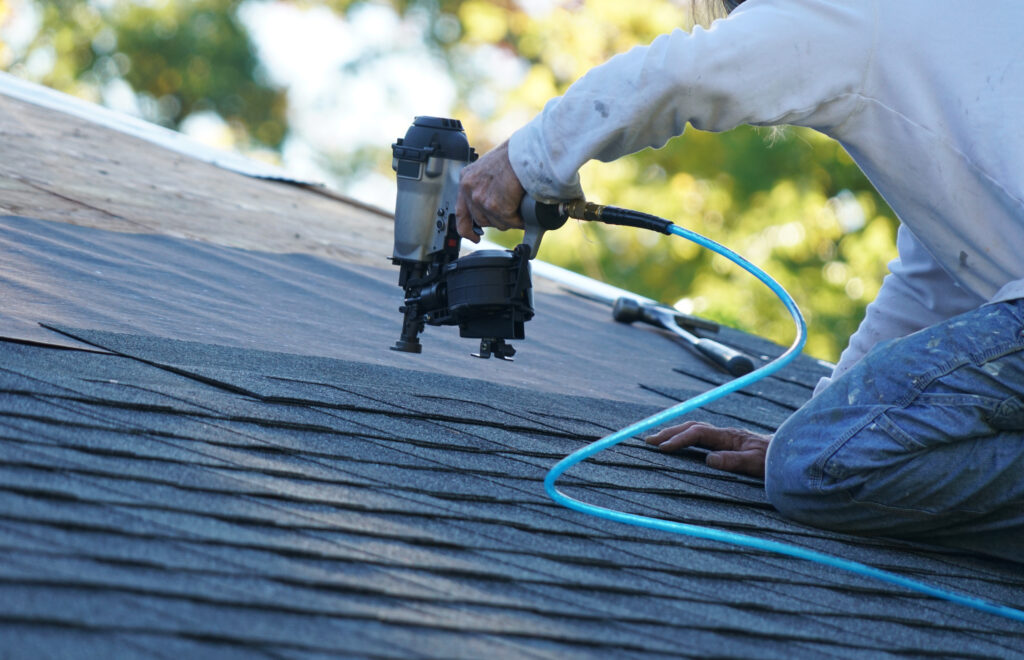Starting a roofing project can sometimes bring surprises, particularly when hidden damages are unearthed as the work progresses. It’s important for homeowners to understand what happens if a roofer, such as American Commercial Roofing, Inc. (ACR), finds more damage after the project starts. Here’s an overview of how such situations are typically handled, focusing on additional damage like decking issues that might not be initially visible.
The Reality of Roofing Projects
Roofing projects are often straightforward, but they can reveal underlying issues once the work begins. These issues might include damaged or rotting plywood, which are crucial components of your roof’s structure.
ACR’s Approach to Additional Plywood Replacement
– Initial Coverage: ACR will replace up to two pieces of plywood as part of the initial project scope. This inclusion accounts for standard damage that can be reasonably anticipated.
– Beyond Standard Replacement: If more than two pieces of plywood need replacing, ACR will inform you of this additional requirement. The cost for replacing additional plywood will be the responsibility of the homeowner.
– Cost of Additional Plywood: The price for each additional sheet of plywood can reach up to $83. It’s important for homeowners to be aware of these potential costs.
Financial Considerations
– Insurance Coverage: Depending on your policy, your insurance may cover the additional damage. However, this often requires a supplemental claim or an adjustment to the original claim.
– Out-of-Pocket Costs: If the additional damage is not covered by insurance, or if insurance coverage is insufficient, you may be responsible for these costs.
– Code Compliance: Sometimes, additional work may be required to bring your roof up to current building codes. Whether or not these costs are covered by insurance can vary.
Process When Additional Damage is Found
Assessment and Communication
- Discovery: When ACR finds additional damage, they will assess the extent and nature of the issue.
- Homeowner Notification: ACR will promptly inform you about the additional damage and the need for further replacements beyond the initial two pieces of plywood.
Financial Implications
- Revised Estimate: If additional damage necessitates more plywood replacements, ACR will provide a revised estimate for the additional materials and labor.
- Insurance Considerations: Depending on your insurance policy, some of these additional costs might be covered. ACR can assist in communicating with your insurance provider to determine if these costs can be included in your claim.
Project Adjustments
- Scope Adjustment: The discovery of more extensive damage may lead to adjustments in the project’s scope, timeline, and possibly methods.
- Approval for Additional Work: ACR will seek your approval before proceeding with any work that extends beyond the original agreement, particularly if it involves additional costs.
Best Practices for Homeowners
– Stay Informed and Involved: Keep in regular contact with ACR throughout the project for updates.
– Review Your Insurance Policy: Understand what your policy covers in terms of roof repairs and replacements, especially for unexpected damages.
– Budget for Contingencies: It’s wise to have a contingency budget for unforeseen repairs in significant renovation or repair projects, including roofing.
– Approve Additional Work: Be sure to formally approve any additional work, especially if it incurs extra costs.
Conclusion
Discovering additional damage during a roofing project is not uncommon and can be managed effectively with clear communication and understanding of the process. ACR’s commitment to transparency ensures that you are well-informed about any additional damages and associated costs. By staying engaged and understanding the financial aspects, homeowners can navigate these unexpected challenges smoothly for a successful project completion.
—
*This article provides an overview of handling additional roof damage discovered during a project with American Commercial Roofing, Inc. (ACR). For specific advice, consult directly with ACR.*

